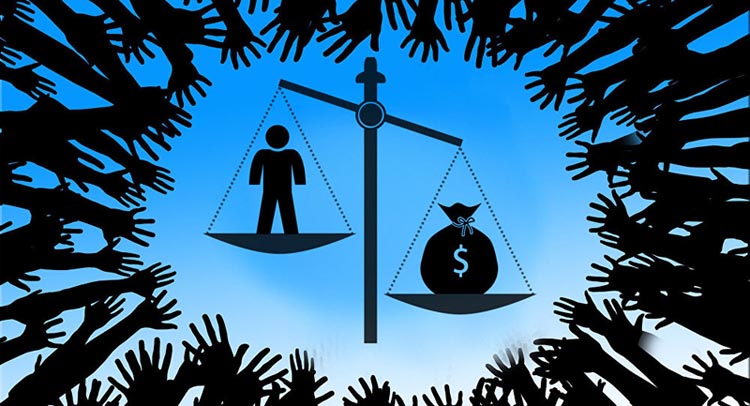The meaning of life is at the heart of what ethics deals with. Are we random mutations that have no plan or purpose for our existence? Are we unique creations of a kind and loving God imbued with intrinsic value? We will come up with very different answers to ethical problems depending on our position on a sliding scale between these two extremes. Most religions fall somewhere closer to the latter. Most utilitarian approaches fall closer to the former. While many people today want to live in a secular society, history has shown that choosing a position of intrinsic value is better for the people.
An example of how this plays out is that most Western countries have a high government standard regulating human testing of new products and medicine. Western countries are historically high on the intrinsic value score. So many researchers are turning to Third World countries that are low on the intrinsic value score. There may be little or no government regulation. They then perform research that many people would consider unethical. There is often no informed consent. Researchers can lie to subjects and mislead them about consequences and long term care. Corporations justify such research by claiming it is for the greater good. The quicker they develop their product, the more people they can help. Humanity is taken as a conglomerate whole rather than individuals who have rights that should not be violated.
High intrinsic value scores grant the individual autonomy and informed consent. Low intrinsic value scores use Utilitarian ethics and say that the primary principle is the most good for the most people. While Utilitarian ethics sound good on the surface, the point is to get below the surface. Utilitarian ethics can make a strong case for slavery as more people benefit than are abused. Therefore, it is critical that while we embrace a secular society to be inclusive of all races and religions, we still maintain that human beings possess a fundamental dignity that governments and corporations cannot violate.
Finally, Utilitarian ethics seem to be chosen primarily by privileged individuals at the top getting the most good. Those of us in the middle need to speak up and add our voices to the small group of people paying the price. Circumstances can change and we might find ourselves in the smaller group one day. Therefore, enlightened self interest insists on the ethics of bioethics and the intrinsic God-given value of life.
